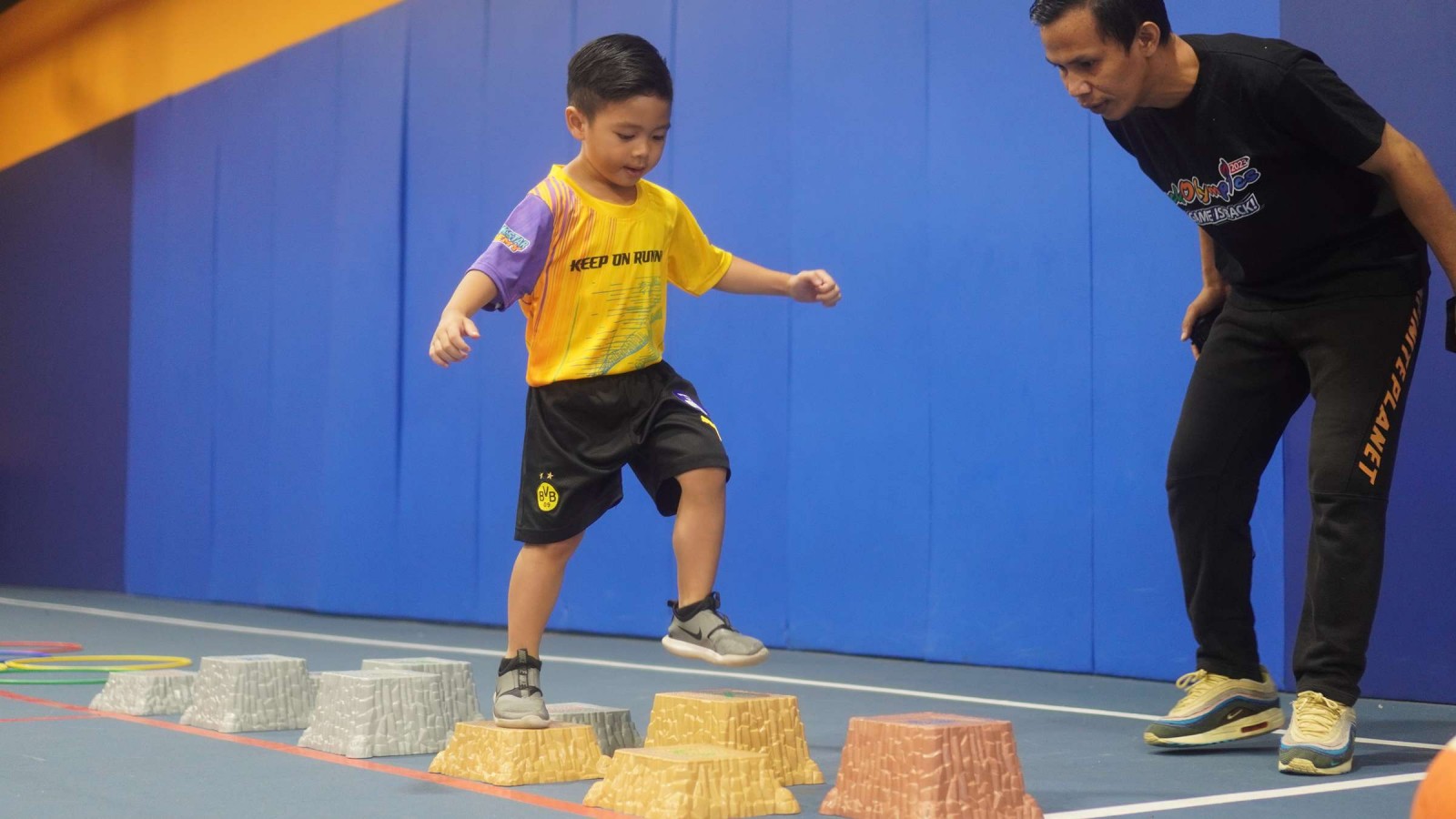The Benefits of Physical Activity During Fasting: A Comprehensive Guide

For parents, especially those with young children, keeping kids engaged and active while fasting can be both challenging and rewarding. During periods of fasting, such as Ramadan in Islam or just simply intermittent fasting, children may be encouraged to participate, albeit in modified ways.
While the focus is often on refraining from food and drink, the role of physical activity during fasting for children is equally important and often overlooked. Engaging in physical activity during fasting can offer a multitude of benefits that contribute to a child's overall well-being.
In this article, we'll explore the benefits of physical activity during fasting, especially for children.
Introducing Fasting to Children
Introducing fasting to children is a topic that requires careful consideration and thoughtful approach. While fasting is a common practice in many cultures and religions, and can have spiritual, cultural, and even potential health benefits for adults when done mindfully, its introduction to children should be approached with caution and sensitivity.
The appropriateness of introducing fasting to children depends largely on their age and developmental stage. Young children may not fully understand the concept of fasting or its significance, and they may struggle to cope with the physical and emotional challenges it presents.
It's essential to consider whether a child is mature enough to comprehend and willingly participate in fasting without undue stress or harm. While children may express curiosity or interest in fasting, it's essential for parents and caregivers to closely monitor their well-being throughout the process.
Observing any signs of physical discomfort, emotional distress, or nutritional deficiencies is crucial, and adjustments to fasting practices may be necessary to ensure the child's health and safety.
Should You Exercise While Fasting?
Exercising on an empty stomach can have both benefits and downsides, so it really depends on your body, goals, and how you feel while training.
One major advantage of working out while fasting is that it helps increase your calorie deficit, which is essential for weight loss. Many people also practice fasted cardio to maximize fat burning. However, there are some challenges you should be aware of:
- Lower Performance: Some people find that exercising without eating first makes them feel weaker or less energetic, which can reduce workout quality.
- Dizziness & Fatigue: Low blood sugar during fasting can lead to lightheadedness and tiredness, making workouts feel harder.
- Increased Hunger: A tough workout while fasting might make you extremely hungry later, which could lead to overeating.
- Potential Muscle Loss: If your body doesn’t get enough nutrients post-workout, fasting combined with exercise might lead to muscle breakdown instead of muscle growth.
- Slower Recovery: Delaying post-workout nutrition can affect how well your body recovers.
- Not for Everyone: While fasting workouts are popular, they may not be safe for everyone—especially older individuals or those with certain health conditions.
If you're interested in trying fasted workouts but aren't sure if they're right for you, it's best to consult a doctor or fitness expert to find the safest approach for your body and goals.
Benefits of Physical Activity during Fasting
Engaging in physical activity during fasting can offer a range of benefits that contribute to a child's overall well-being. Here's a detailed explanation and elaboration of these benefits:
1. Maintaining Energy Levels
One of the primary concerns during fasting is maintaining adequate energy levels, especially for children who are still growing and developing. Contrary to common belief, engaging in moderate physical activity can actually help sustain energy levels throughout the day.
While intense exercise may be challenging during fasting hours, activities like walking, light jogging, or gentle stretching can invigorate the body and alleviate feelings of lethargy.
2. Enhancing Mental Alertness
Physical activity stimulates blood circulation and oxygen flow to the brain, which can enhance cognitive function and mental alertness. For children fasting during school hours, incorporating short breaks for light physical activity can help them stay focused and attentive in class.
Even a brief walk or stretching session can provide a much-needed mental boost, improving overall productivity and academic performance.
3. Promoting Physical Health
Regular physical activity is essential for maintaining good physical health, and fasting should not be a deterrent to staying active. Based on research, engaging in moderate exercise during fasting periods can contribute to cardiovascular health, muscle strength, and overall fitness.
Encouraging children to participate in activities they enjoy, such as cycling, swimming, or playing sports with friends, not only supports their physical well-being but also instills lifelong habits of healthy living.
4. Managing Stress and Anxiety
Fasting, particularly for extended periods, can sometimes induce feelings of stress or anxiety, especially in children who may not fully understand the reasons behind the practice.
Physical activity serves as a natural stress reliever by triggering the release of endorphins, the body's feel-good hormones. By incorporating regular exercise into their fasting routine, children can better manage stress levels and maintain a positive outlook throughout the day.
5. Fostering Discipline and Self-Control
Participating in physical activity during fasting requires discipline and self-control, qualities that are integral to the practice of fasting itself. By setting aside time for exercise despite the temporary discomfort of hunger or thirst, children learn valuable lessons in self-discipline and perseverance.
These skills extend beyond the realm of fasting and can positively influence various aspects of their lives, including academics, relationships, and personal goals.
6. Strengthening Family Bonds
Engaging in physical activity together as a family during fasting periods can strengthen bonds and create lasting memories. Whether it's a leisurely stroll after the evening meal to break the fast or a friendly game of soccer in the backyard, shared physical activities foster a sense of unity and closeness within the family.
These moments of togetherness reinforce the values of love, support, and cooperation that are central to the spirit of fasting.
What Kind of Physical Activity Can You Do While Fasting?
Exercising while fasting can be a great way to stay active, burn fat, and improve overall health. But since your body isn’t fueled by recent meals, you need to be mindful of what types of workouts you choose. Some exercises are great for fasting, while others might be too intense. Let’s dive into the best physical activities you can do while fasting and why they work well.
1. Low-Intensity Cardio (Walking, Jogging, or Cycling)
If your goal is to burn fat without exhausting yourself, low-intensity cardio is one of the best options. This includes activities like brisk walking in the park, light jogging around your neighborhood, or casual cycling. Since these exercises don’t require sudden bursts of energy, they allow your body to efficiently tap into fat stores for fuel without making you feel overly drained.
One of the biggest benefits of low-intensity cardio while fasting is that it doesn’t put too much stress on your body. It helps improve endurance, burn calories, and keep your metabolism active without causing dizziness or fatigue. The best time to do this type of exercise is in the morning before breaking your fast, as it can help jumpstart your metabolism and energize you for the rest of the day.
2. Yoga & Stretching
If you’re fasting, your body might feel a little sluggish, making yoga and stretching a perfect option to keep you moving without overexerting yourself. Yoga improves flexibility, posture, and mental clarity, while stretching keeps your muscles relaxed and prevents stiffness. Even simple yoga sequences, like Sun Salutations, can help boost circulation and keep you feeling refreshed.
Since yoga and stretching don’t require much energy, they are perfect for any time during fasting hours. They also promote relaxation and mindfulness, which can be helpful if fasting makes you feel irritable or low on energy. Whether you’re looking to ease muscle tension, stay flexible, or simply unwind, yoga and stretching are excellent choices.
3. Bodyweight Training (Light Strength Training)
If you want to maintain muscle mass while fasting, light bodyweight exercises are a great way to do so. These include simple yet effective movements like squats, push-ups, lunges, and planks. Unlike intense strength training, bodyweight exercises allow you to engage your muscles without putting too much strain on your energy reserves.
One of the best things about bodyweight exercises is that you can adjust the intensity based on how you feel. If you’re feeling strong, you can increase the number of repetitions or hold your positions longer. If you’re feeling tired, you can do shorter sets. It’s best to do these exercises closer to your eating window, so your body gets the nutrients it needs for proper muscle recovery.
4. Resistance Band Training
If you don’t want to lift heavy weights but still want some form of resistance training, resistance bands are a great alternative. Exercises like bicep curls, shoulder presses, glute bridges, and seated rows can be done using resistance bands, providing just enough challenge without overloading your muscles.
Resistance bands are particularly great because they are gentle on the joints and allow for controlled movement, reducing the risk of injury. This makes them perfect for fasting, as you won’t feel too drained after your workout. Since resistance band workouts can range from light to moderate intensity, you can do them anytime, but if you plan to push yourself, it’s best to do them closer to your meal time.
Tips to Exercise Safely While Fasting
Fasting can be a great way to reset your body, but if you’re someone who loves working out, you might wonder: “Can I still exercise while fasting?” The short answer is yes! But you need to do it smartly to keep your energy up and avoid risks like dehydration or exhaustion. Here are some essential tips to help you stay active while fasting.
1. Pick the Right Time for Your Workout
When you exercise matters just as much as how you exercise. Ideally, try to avoid working out in the middle of your fast when your energy levels are at their lowest. Instead, choose one of these options:
- Before your fast begins – This way, you can hydrate before, during, and after your workout.
- After breaking your fast – This allows you to refuel and rehydrate before getting active.
If you’re an athlete or part of a sports team and can’t control your workout schedule, don’t worry! Just make sure to adjust your food and water intake accordingly (more on that below).
2. Eat the Right Foods Before Your Fast Begins
Your pre-fast meal is crucial! If you’re fasting from sunrise to sunset, skipping breakfast is a bad idea. Instead, fuel up with:
- Protein – Helps maintain muscle strength (a protein shake is a great option!).
- Healthy Fats – Keeps you full longer (think avocados, nuts, or olive oil).
- Complex Carbs – Provides long-lasting energy (brown rice, whole wheat bread, or oats).
But what if your fast doesn’t allow food in the morning? If that’s the case, it’s best to skip intense exercise until you can properly refuel after breaking your fast.
3. Stay Hydrated Before and After Your Fast
Water plays a massive role in performance and recovery, but fasting limits when you can drink. That means you should:
- Drink plenty of water before and after your fast.
- Eat hydrating foods like watermelon, cucumber, and oranges.
- Avoid caffeine before fasting, as it can dehydrate you faster.
Warning signs of dehydration:
- Dizziness or headaches
- Muscle cramps
- Nausea or trouble focusing
If you experience these, it’s best to stop your workout and rehydrate as soon as you can.
4. Adjust Your Workout Expectations
Fasting affects your body's energy levels, so it’s important to adjust your workout expectations accordingly. You may notice that you can’t run as far, lift as much weight, or maintain the same level of endurance as usual—and that’s perfectly okay! Instead of focusing on intensity, prioritize the quality of your movements. Listen to your body and take breaks if you feel weak, dizzy, or overly fatigued. If you're fasting for an extended period, such as during Ramadan, give yourself time to adapt to the new schedule and gradually ease into your workouts.
5. Cool Down Properly
Sweating is your body’s natural way of cooling down, but if sweat doesn’t evaporate, you might feel even hotter, especially in humid environments. To help your body regulate its temperature effectively, wear sweat-wicking clothing that keeps your skin dry. After exercising, change out of sweaty clothes as soon as possible to prevent discomfort and overheating. If possible, take a cold shower or splash some cool water on your face and neck to bring your body temperature down. These small adjustments can help you recover faster and feel more comfortable after a workout.
6. Break Your Fast with Smart Food Choices
After a long fast, it’s tempting to dive into a heavy meal, but doing so can make exercising afterward more difficult. Instead, start with light, nutritious foods that provide quick energy without weighing you down. Fruits, such as bananas or dates, are excellent choices for an energy boost. Hydration is also key—drink plenty of water before considering caffeinated or sugary drinks, which can lead to dehydration. Lastly, avoid greasy or heavy meals right before working out, as they can slow digestion and leave you feeling sluggish. By choosing the right foods, you’ll set yourself up for a more effective and comfortable workout post-fast.
7. Be Extra Careful in Hot Weather
Exercising in the heat while fasting increases the risk of heat exhaustion or heat stroke. Watch for these symptoms:
- Heat rash – Small red bumps from trapped sweat.
- Heat cramps – Painful muscle spasms from loss of nutrients.
- Heat exhaustion – Feeling dizzy, nauseous, or weak.
- Heat stroke – A dangerous condition where your body overheats (seek medical help immediately).
If it’s very hot outside, it’s best to avoid intense workouts or stay in a cool, shaded area.
8. Inform Coaches or Trainers (for Athletes & Students)
If your child is an athlete and fasting for Ramadan or another reason, let their coach or PE teacher know. Kids don’t always recognize when they’re dehydrated or overheated, so having extra supervision can help keep them safe.
9. Check if Fasting is Safe for You
Not everyone should fast, especially if you have certain medical conditions. If you’re unsure whether fasting and exercising are safe for you, talk to a doctor or nutritionist. If fasting isn’t an option, consider alternative ways to observe the practice in a way that won’t harm your health.
Conclusion
Physical activity during fasting offers numerous benefits for children, encompassing physical, mental, emotional, and social dimensions of well-being. By encouraging children to stay active during fasting periods, parents and caregivers support their overall development and help them navigate the challenges of fasting with resilience and positivity.
Additionally, you can also enroll your children to physical education programs to support them in doing physical activities during fasting. If you are interested in doing so, Rockstar Academy is an excellent option.
With a range of PE programs to choose from and a free trial class available for anyone interested, Rockstar Academy provides a supportive and engaging environment for children to stay active and healthy even during fasting period!
FAQ
Why is physical activity important during fasting for children?
Engaging in physical activity during fasting helps children maintain energy levels, enhance mental alertness, promote physical health, manage stress and anxiety, foster discipline and self-control, and strengthen family bonds.
How does physical activity help maintain energy levels during fasting?
Physical activity stimulates circulation and oxygen flow throughout the body, which can counteract feelings of fatigue and lethargy commonly experienced during fasting.
Can physical activity improve mental alertness during fasting?
Yes, physical activity increases blood circulation and oxygen delivery to the brain, enhancing cognitive function and mental alertness, which is particularly beneficial for children fasting during school hours.
What are the benefits of physical activity for physical health during fasting?
Regular physical activity during fasting contributes to cardiovascular health, muscle strength, and overall fitness, helping children maintain their physical well-being despite the temporary dietary restrictions.
How does physical activity help manage stress and anxiety during fasting?
Exercise triggers the release of endorphins, the body's feel-good hormones, which can help children better manage stress levels and maintain a positive outlook throughout the fasting period.
What role does physical activity play in fostering discipline and self-control during fasting?
Participating in physical activity during fasting requires discipline and self-control, teaching children valuable lessons in perseverance and helping them develop skills that extend beyond the fasting period.



